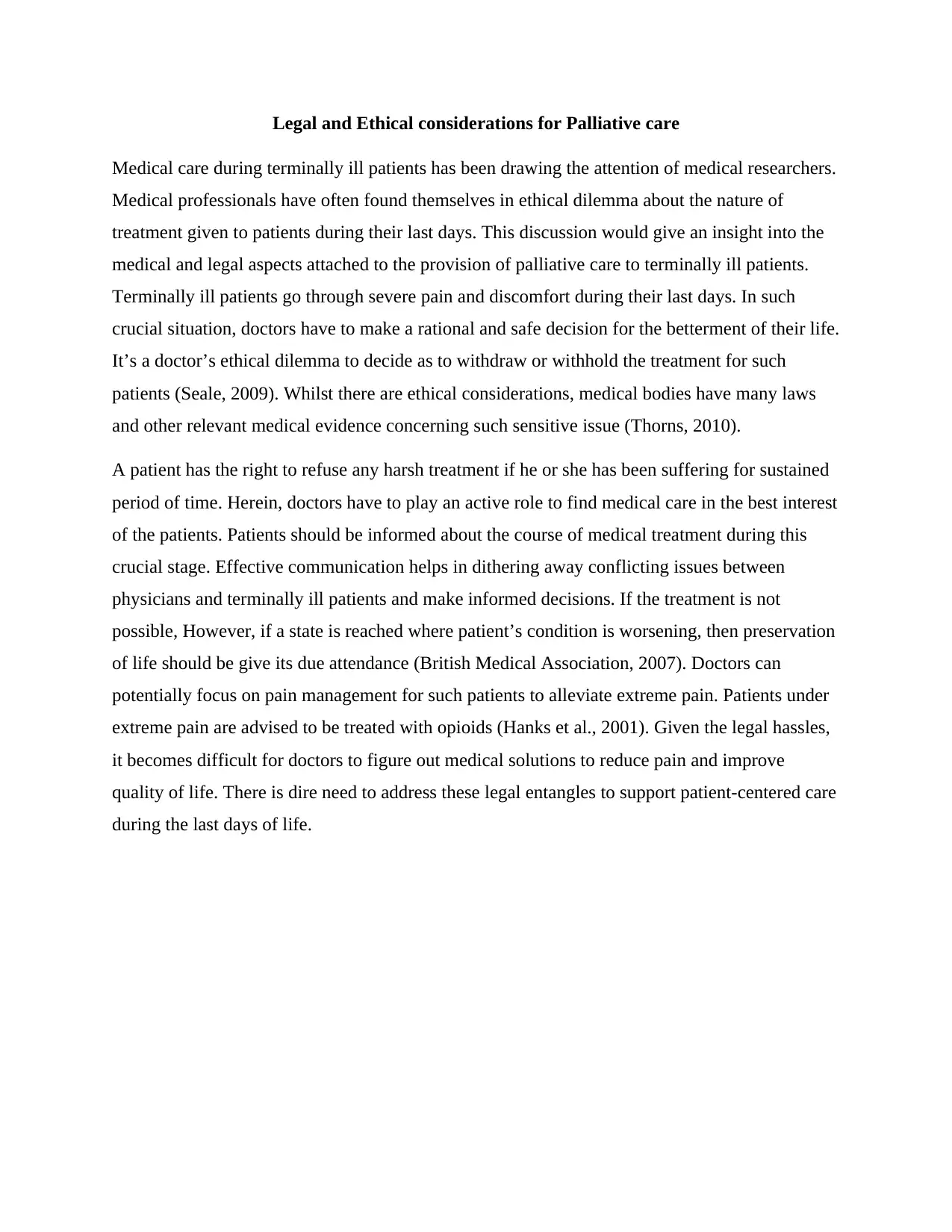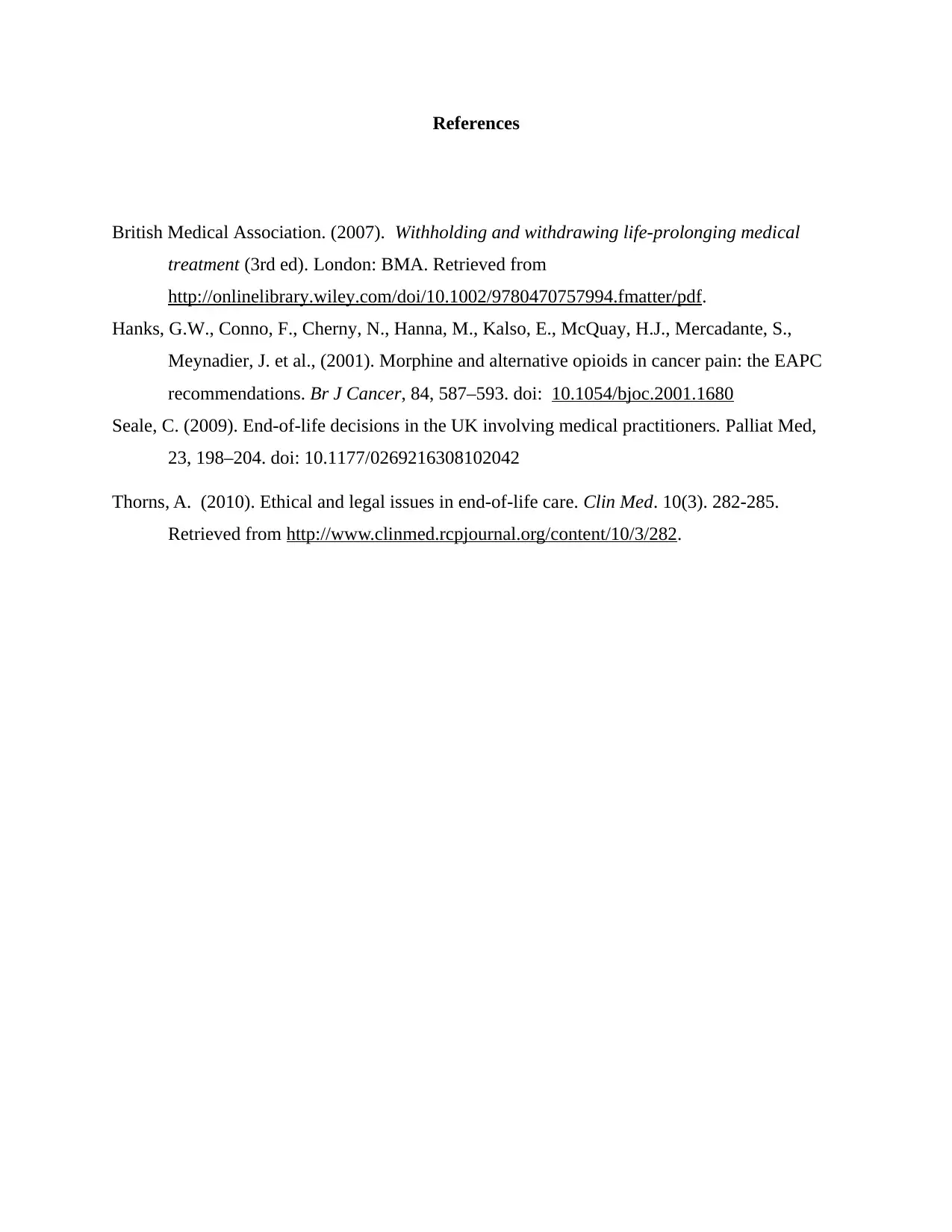A Report on Legal and Ethical Considerations in Palliative Care
VerifiedAdded on 2020/04/01
|2
|501
|86
Report
AI Summary
This report delves into the legal and ethical considerations surrounding palliative care for terminally ill patients. It explores the ethical dilemmas faced by medical professionals, such as whether to withdraw or withhold treatment, and emphasizes the importance of patient rights and informed consent. The report highlights the legal framework, including the patient's right to refuse treatment, and the need for effective communication between doctors and patients. It also addresses the role of pain management, particularly the use of opioids, and stresses the need to navigate legal complexities to ensure patient-centered care during the final stages of life. The report references key medical literature and guidelines, including the British Medical Association's stance on end-of-life decisions and recommendations for morphine use in cancer pain.
1 out of 2








![[object Object]](/_next/static/media/star-bottom.7253800d.svg)